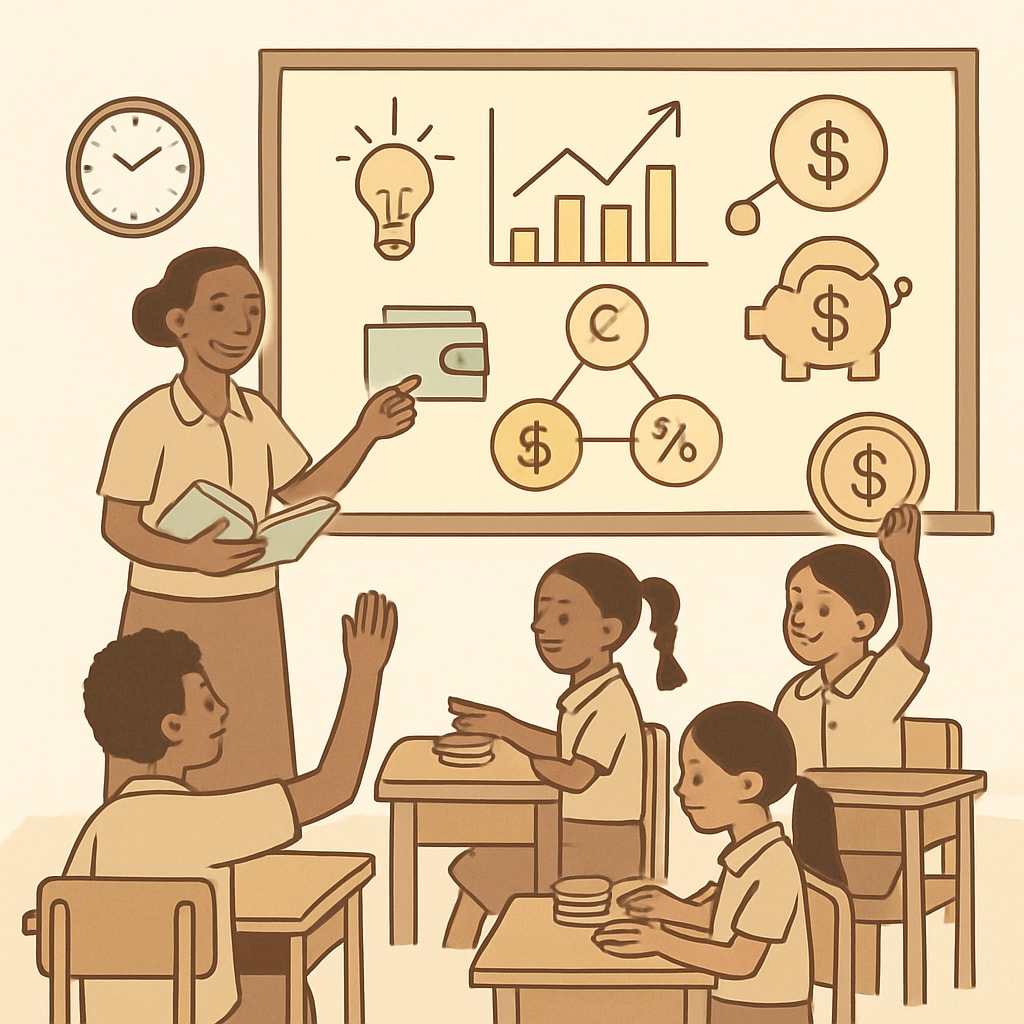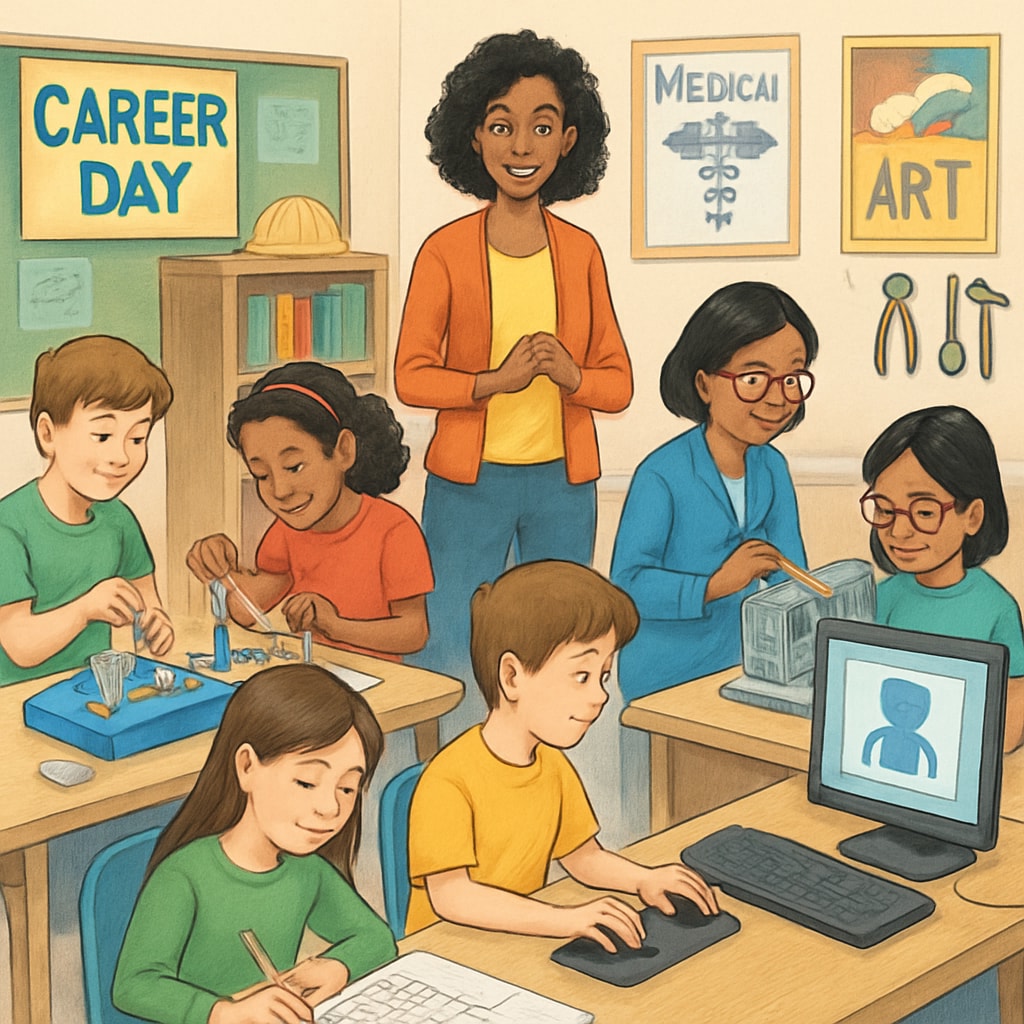In today’s interconnected global economy, addressing the gaps in financial literacy, career planning, and national development is critical for K-12 education systems in developing countries. These gaps hinder students from making informed career choices and limit their ability to navigate the complexities of modern global markets. By integrating financial education and career planning into the core curriculum, schools can equip students with the tools to succeed in a competitive world and contribute to their nation’s progress.
The Importance of Financial Literacy in Education
Financial literacy—the ability to understand and effectively use financial skills such as budgeting, investing, and managing debt—is a cornerstone for personal and career success. However, many K-12 systems in developing countries overlook this vital component, focusing instead on traditional academic subjects. This lack of financial education leaves students unprepared for real-world challenges such as managing personal finances or understanding the economic factors influencing job markets.
In addition to personal benefits, financial literacy contributes to national development. When individuals are financially educated, they make better economic decisions, which can improve household income levels and support broader economic growth. Schools can play a pivotal role in fostering this knowledge early, ensuring that students enter adulthood equipped to contribute to both their personal and national prosperity.

Career Planning: Bridging Education and Employment
Career planning is another crucial area often neglected in K-12 education in developing countries. Without exposure to various career options or an understanding of the skills required in emerging industries, students may struggle to align their education with future employment opportunities. This misalignment can lead to underemployment, wage stagnation, and a lack of innovation within the workforce.
To address this, educators must introduce career planning tools and workshops that help students identify their strengths, interests, and potential career paths. For example, integrating mentorship programs, industry partnerships, and exposure to real-world job scenarios can provide students with practical insights into different professions. Such initiatives not only prepare students for the workforce but also foster aspirations aligned with global economic trends.

Global Competitiveness Through Integrated Education
Incorporating financial literacy and career planning into K-12 education isn’t just about individual success—it’s about empowering developing countries to compete on a global scale. As industries evolve and new economic opportunities arise, nations need skilled workers who can adapt to these changes. Schools that prioritize financial and career education create a pipeline of talent capable of driving innovation and growth.
- Financial education: Enhances decision-making and promotes economic stability.
- Career planning: Aligns student interests with market demands, reducing unemployment rates.
- Global competitiveness: Strengthens national economies by cultivating a workforce skilled in emerging industries.
For example, countries like Singapore have successfully integrated financial literacy into their education systems, leading to higher rates of entrepreneurship and economic resilience. Developing countries can learn from such models to create tailored programs that address their unique challenges.
Conclusion: A Call to Action for Educators and Policymakers
To bridge the gap between education and employment, developing countries must rethink their approach to K-12 education. Financial literacy and career planning are not optional; they are essential components of a modern curriculum that prepares students for the future. Policymakers and educators must collaborate to implement these changes, ensuring that the next generation is equipped to drive personal and national development.
By prioritizing financial education and career planning in schools, nations can empower their youth to make informed decisions, pursue meaningful careers, and compete in a global economy. The time for action is now—students deserve an education that prepares them not just for exams, but for life.
Readability guidance: This article uses concise paragraphs, integrates lists to summarize key points, and avoids excessive jargon to maintain clarity. Images and external links provide additional context and credibility.


